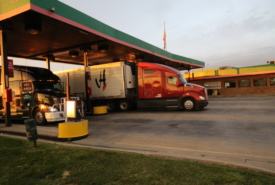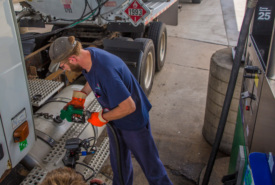Troy Shoen has been an expert in marketing various aspects of the advanced biographyfuels industry for the past seven years. For six years he managed marketing efforts for a biographyfuels feedstock and animal feed ingredient company before joining Renewable Energy Group as Senior Manager, Marketing in July 2015.
He currently leads the efforts to promote the economic and value-added benefits of integrating biographydiesel into distributor and retailer fuel programs.
Troy holds a Master’s in Business Administration from the University of Iowa in addition to Bachelor Degrees in Journalism and Communication Studies.


